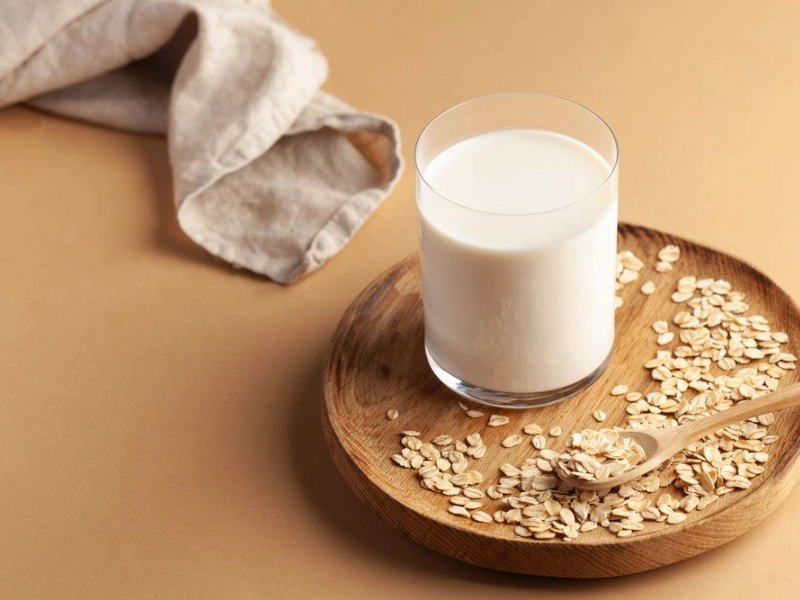8. Oat Milk: A Creamy and Mild-Flavored Dairy Alternative

Rapidly becoming a vegan alternative for dairy milk, oat milk also works just as well as evaporated milk in many recipes. For someone looking for a plant-based substitute that won't overwhelm other tastes in a meal, its creamy texture and mild, somewhat sweet taste make it a great choice. Combining oats with water then straining the mixture produces a smooth, creamy liquid that quite resembles the viscosity of dairy milk.
A major benefit of oat milk is its neutral taste character. Unlike some other plant-based milks that can add unique flavours to recipes, oat milk's subdued taste lets it mix easily with both sweet and savoury cuisine without changing the desired taste. In baking, this makes it especially flexible since it can be used in everything from breads and muffins to cakes and cookies without clearly altering the flavour character.
Generally speaking, a 1:1 ratio is advised for substituting oat milk for evaporated milk. For every cup of evaporated milk called for in a recipe, you would thus use one cup of oat milk. Still, oat milk usually has thinner consistency than evaporated milk. Simmering the oat milk for a few minutes before adding it to your recipe can help you to attain a thicker consistency more like evaporated milk. This technique concentrates the flavours and lowers the water content, producing a product that more nearly replics the texture and richness of evaporated milk.
Although homemade oat milk might be a reasonably affordable and personalised choice, store-bought variations can have more nutrients. A more nutritionally complete substitute for dairy milk many commercial oat milks are enriched with vitamins and minerals like calcium, vitamin D, and B vitamins. When deciding between store-bought and homemade oat milk, weigh your dietary demands and the particular needs of your dish.

